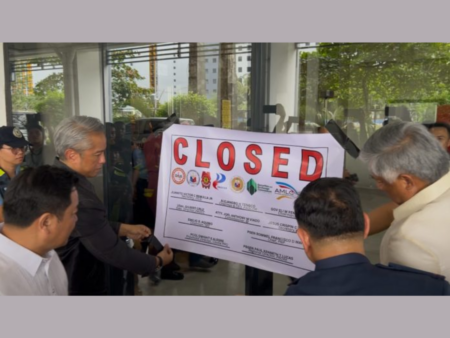The issue of gambling addiction has become a critical concern globally, with its profound social and economic impacts. As gambling becomes increasingly accessible, the need for effective measures to combat addiction has never been more urgent. The Gemeinsame Glücksspielbehörde der Länder (GGL), Germany’s Joint Gambling Authority, has recognized this pressing need and is taking significant steps to address it. By collaborating closely with state offices, the GGL aims to implement a comprehensive and coordinated approach to prevent and treat gambling addiction, safeguarding vulnerable populations.
Understanding the Scope of Gambling Addiction in Germany
Gambling addiction affects a substantial portion of the population in Germany, with thousands of individuals struggling with the compulsion to gamble, often to the detriment of their personal and financial well-being. The rise of online gambling platforms has exacerbated this issue, making it easier for individuals to engage in gambling activities at any time, often without the necessary safeguards in place.
The GGL has been at the forefront of regulatory efforts to mitigate these risks. However, recognizing that regulation alone is insufficient, the GGL has adopted a multi-faceted approach that involves collaboration with various state offices, healthcare providers, and social services to provide a more robust and effective response to gambling addiction.
The Role of the GGL in Gambling Regulation
The Gemeinsame Glücksspielbehörde der Länder (GGL) was established as part of Germany’s Fourth Interstate Gambling Treaty (Glücksspielstaatsvertrag 2021), which came into effect in July 2021. The GGL is responsible for overseeing all gambling activities in Germany, ensuring that operators comply with strict regulations designed to protect consumers and maintain the integrity of the gambling market.
One of the GGL’s primary mandates is to prevent gambling addiction and ensure that gambling remains a safe and controlled activity. To this end, the GGL has implemented several key measures, including mandatory player protection protocols, self-exclusion programs, and strict advertising guidelines. However, the GGL has recognized that more proactive and collaborative efforts are needed to effectively address the root causes of gambling addiction.
Collaborating with State Offices: A Unified Approach
In an effort to enhance its gambling addiction prevention strategies, the GGL has entered into strategic partnerships with state offices across Germany. These collaborations are designed to leverage the expertise and resources of various state agencies to provide a more comprehensive approach to tackling gambling addiction.
Integrated Support Systems
One of the key elements of this collaboration is the development of integrated support systems that connect individuals struggling with gambling addiction to the necessary resources and services. State offices play a crucial role in this process, providing access to counseling services, financial advice, and medical treatment for those affected by gambling addiction.
The GGL and state offices have also worked together to establish a nationwide network of support centers, ensuring that individuals in need can access help regardless of their location. These centers offer a range of services, including crisis intervention, long-term counseling, and support for families affected by gambling addiction.
Data Sharing and Analysis
Another critical aspect of the collaboration between the GGL and state offices is the sharing of data and research related to gambling behavior and addiction. By pooling their resources and expertise, the GGL and state offices can conduct more comprehensive analyses of gambling trends, identify at-risk populations, and develop targeted interventions.
This data-driven approach allows the GGL to refine its regulatory measures, ensuring that they are effective in preventing gambling addiction. For example, by analyzing data on gambling patterns, the GGL can identify triggers for addictive behavior and work with state offices to develop educational campaigns aimed at raising awareness of these risks.
Public Awareness Campaigns
Public awareness is a crucial component of any strategy to combat gambling addiction. The GGL, in partnership with state offices, has launched several nationwide campaigns designed to educate the public about the risks of gambling and the resources available for those who need help.
These campaigns are designed to reach a wide audience, utilizing various media channels, including television, radio, social media, and print advertising. The messaging focuses on the importance of responsible gambling, recognizing the signs of addiction, and knowing where to seek help. By raising awareness, the GGL and state offices aim to reduce the stigma associated with gambling addiction and encourage more individuals to seek assistance.
Enhanced Player Protection Measures
In addition to collaborative efforts, the GGL has introduced enhanced player protection measures that operators are required to implement. These measures include stringent verification processes to prevent underage gambling, mandatory spending limits, and time-out options that allow players to take breaks from gambling.
The GGL has also enforced strict advertising regulations to prevent the glamorization of gambling and to ensure that advertisements do not target vulnerable individuals, particularly minors. These measures are designed to create a safer gambling environment and reduce the risk of addiction.
The Future of Gambling Addiction Prevention in Germany
As the landscape of gambling continues to evolve, the GGL is committed to staying ahead of emerging challenges. The authority plans to expand its collaboration with state offices, exploring new ways to enhance support for individuals affected by gambling addiction and to prevent the onset of addiction.
The GGL is also focused on integrating new technologies into its regulatory framework. For example, the use of artificial intelligence and machine learning to monitor gambling behavior in real-time could provide new insights into addiction patterns and enable more timely interventions.
Ongoing Research and Innovation
The GGL is dedicated to continuous research and innovation in the field of gambling addiction prevention. By staying at the forefront of scientific advancements and collaborating with academic institutions, the GGL aims to develop new tools and strategies that can be implemented at both the regulatory and community levels.
Conclusion: A Unified Effort to Combat Gambling Addiction
The collaboration between the Gemeinsame Glücksspielbehörde der Länder (GGL) and state offices marks a significant step forward in the fight against gambling addiction in Germany. By combining regulatory oversight with comprehensive support systems, data-driven strategies, and public awareness campaigns, the GGL is working to create a safer and more responsible gambling environment.
FAQs About the Collaboration between the Gemeinsame Glücksspielbehörde der Länder (GGL) and State Offices
1. What is the GGL’s primary role in gambling regulation in Germany?
The Gemeinsame Glücksspielbehörde der Länder (GGL) is responsible for overseeing all gambling activities in Germany. Its primary role includes ensuring that operators comply with regulations designed to protect consumers, prevent gambling addiction, and maintain the integrity of the gambling market.
2. Why is the collaboration between the GGL and state offices important?
The collaboration between the GGL and state offices is crucial for providing a comprehensive approach to combating gambling addiction. This partnership allows for the integration of resources and expertise from various state agencies, enhancing the effectiveness of support systems, public awareness campaigns, and data-driven strategies.
3. How does the GGL work to prevent gambling addiction?
The GGL implements several measures to prevent gambling addiction, including mandatory player protection protocols, self-exclusion programs, and strict advertising guidelines. Additionally, the GGL collaborates with state offices to provide integrated support systems and public awareness campaigns aimed at educating the public and offering help to those in need.
4. What kind of support is available for individuals struggling with gambling addiction in Germany?
Individuals struggling with gambling addiction in Germany can access a range of support services, including counseling, financial advice, and medical treatment. The GGL and state offices have established a nationwide network of support centers to ensure help is available across the country.
5. How does data sharing between the GGL and state offices contribute to combating gambling addiction?
Data sharing between the GGL and state offices allows for comprehensive analyses of gambling behavior, helping to identify at-risk populations and develop targeted interventions. This collaborative approach enhances the effectiveness of regulatory measures and public awareness campaigns.
6. What public awareness campaigns has the GGL launched to address gambling addiction?
The GGL, in partnership with state offices, has launched several nationwide public awareness campaigns aimed at educating the public about the risks of gambling and the resources available for those who need help. These campaigns use various media channels to promote responsible gambling and reduce the stigma associated with gambling addiction.
7. What enhanced player protection measures has the GGL introduced?
The GGL has introduced several enhanced player protection measures, including stringent verification processes to prevent underage gambling, mandatory spending limits, and time-out options for players. Additionally, the GGL enforces strict advertising regulations to prevent the glamorization of gambling and to protect vulnerable individuals.
8. What are the future plans of the GGL in combating gambling addiction?
The GGL plans to expand its collaboration with state offices, explore new technologies such as artificial intelligence for monitoring gambling behavior, and continue innovating in the field of gambling addiction prevention. The GGL is also committed to ongoing research to develop new tools and strategies for both regulatory and community-level interventions.
9. How does the GGL ensure that gambling remains a safe activity in Germany?
The GGL ensures that gambling remains safe by enforcing strict regulations, collaborating with state offices to provide support for individuals affected by gambling addiction, and implementing public awareness campaigns. The GGL’s comprehensive approach aims to protect consumers and promote responsible gambling practices.
10. What impact does the GGL’s work have on the community and economy?
The GGL’s work has a significant impact on the community by providing support for individuals affected by gambling addiction and ensuring a safer gambling environment. Economically, the GGL’s regulatory efforts help maintain the integrity of the gambling market, which in turn supports jobs, generates revenue, and contributes to the overall well-being of society.


















